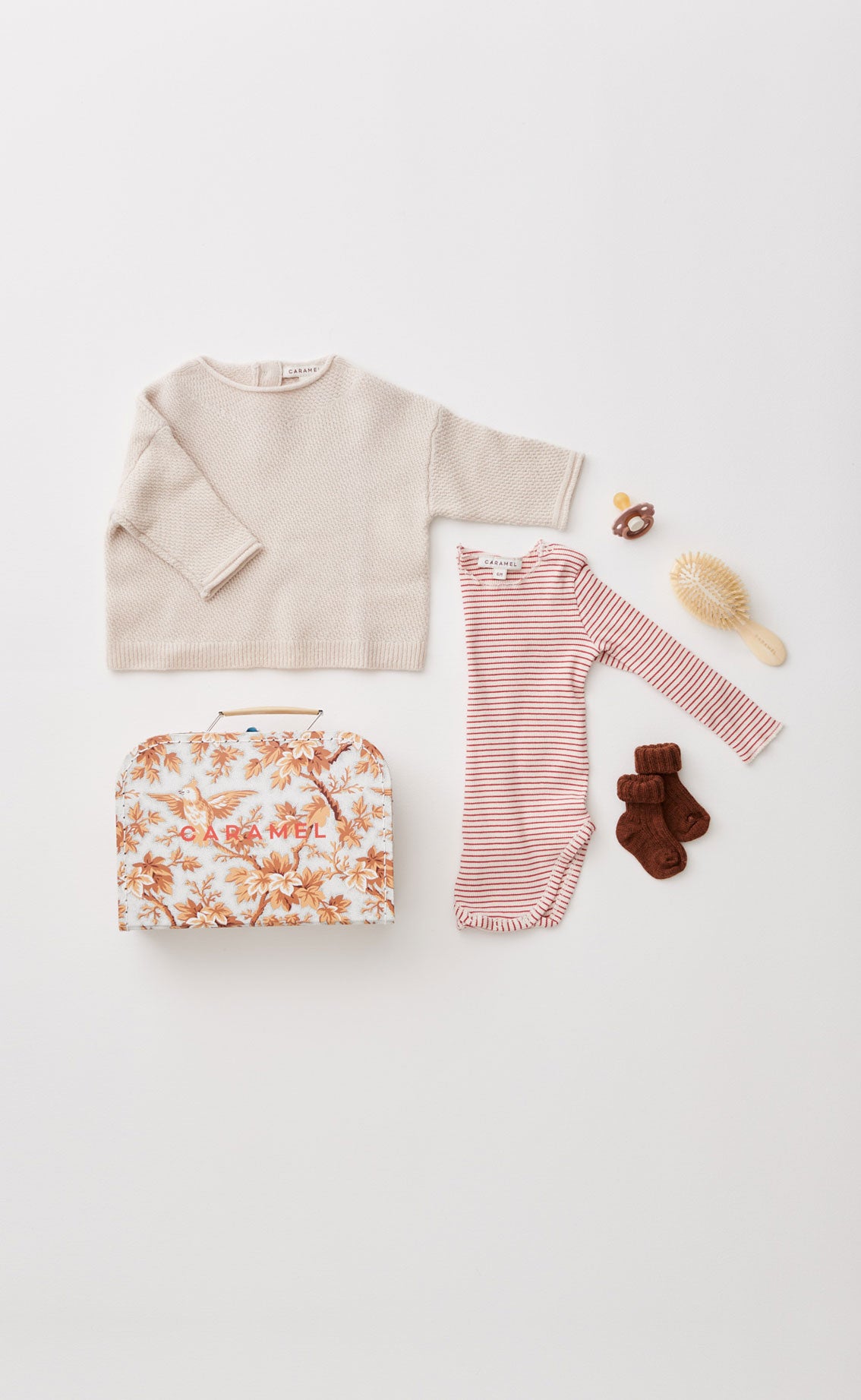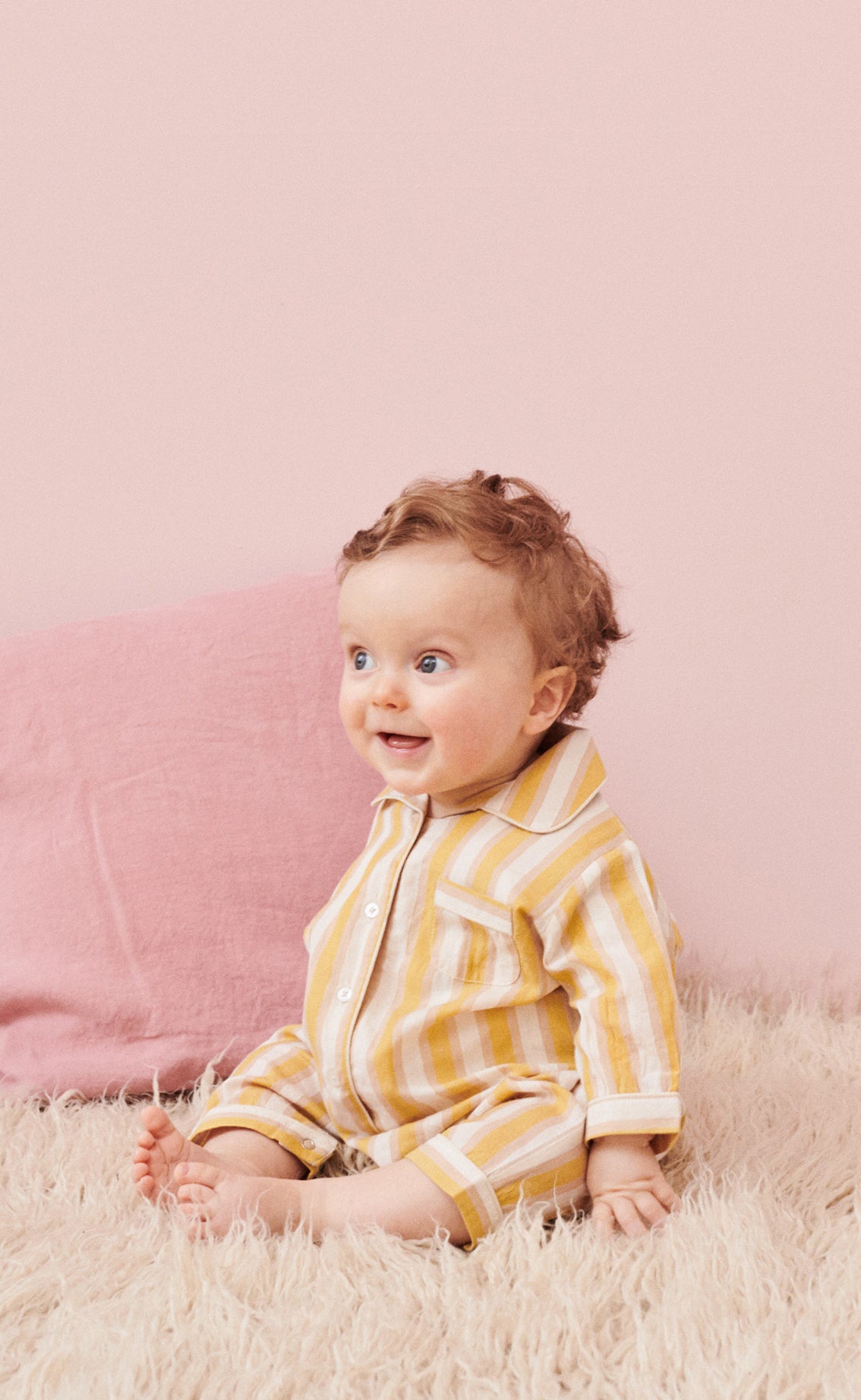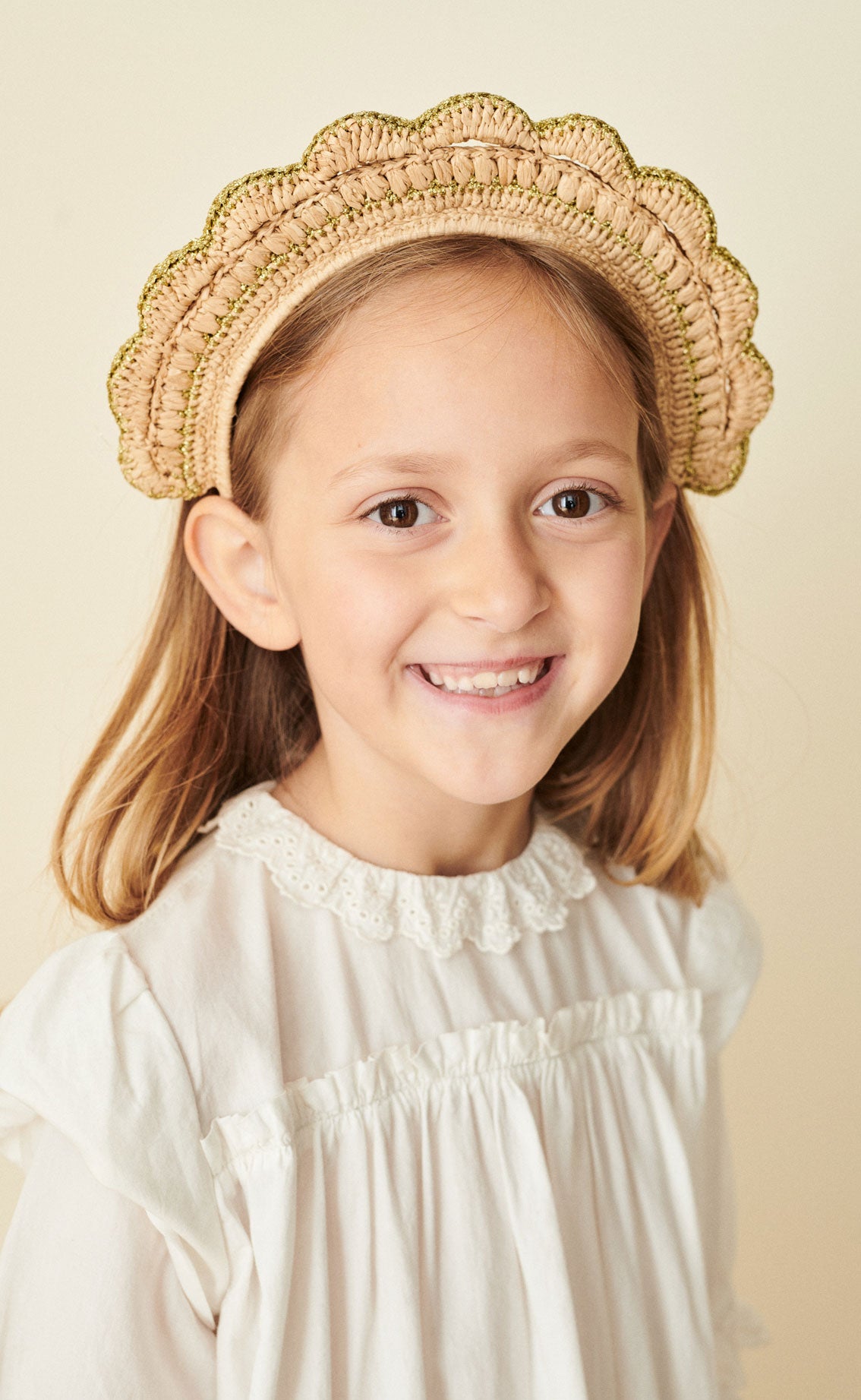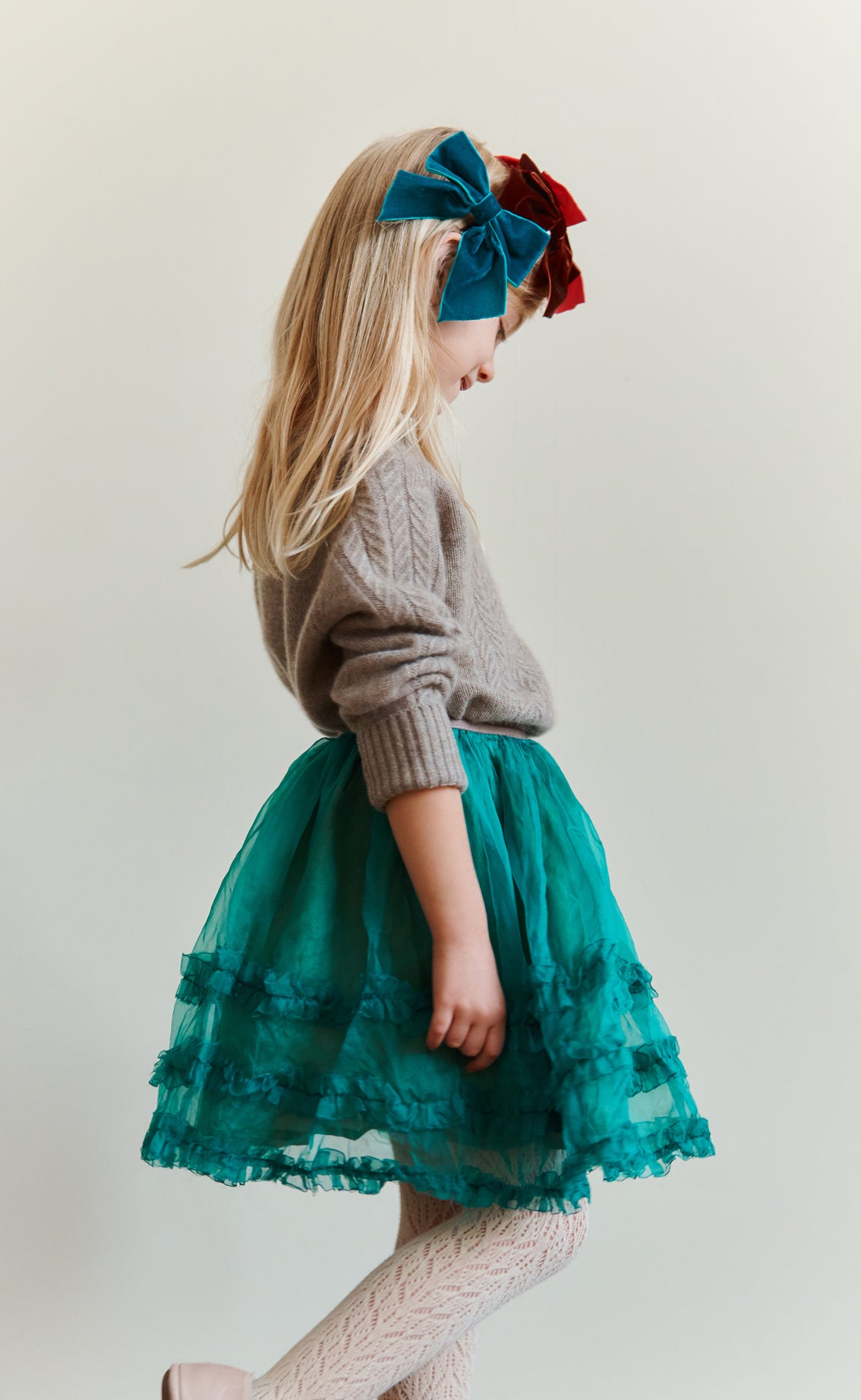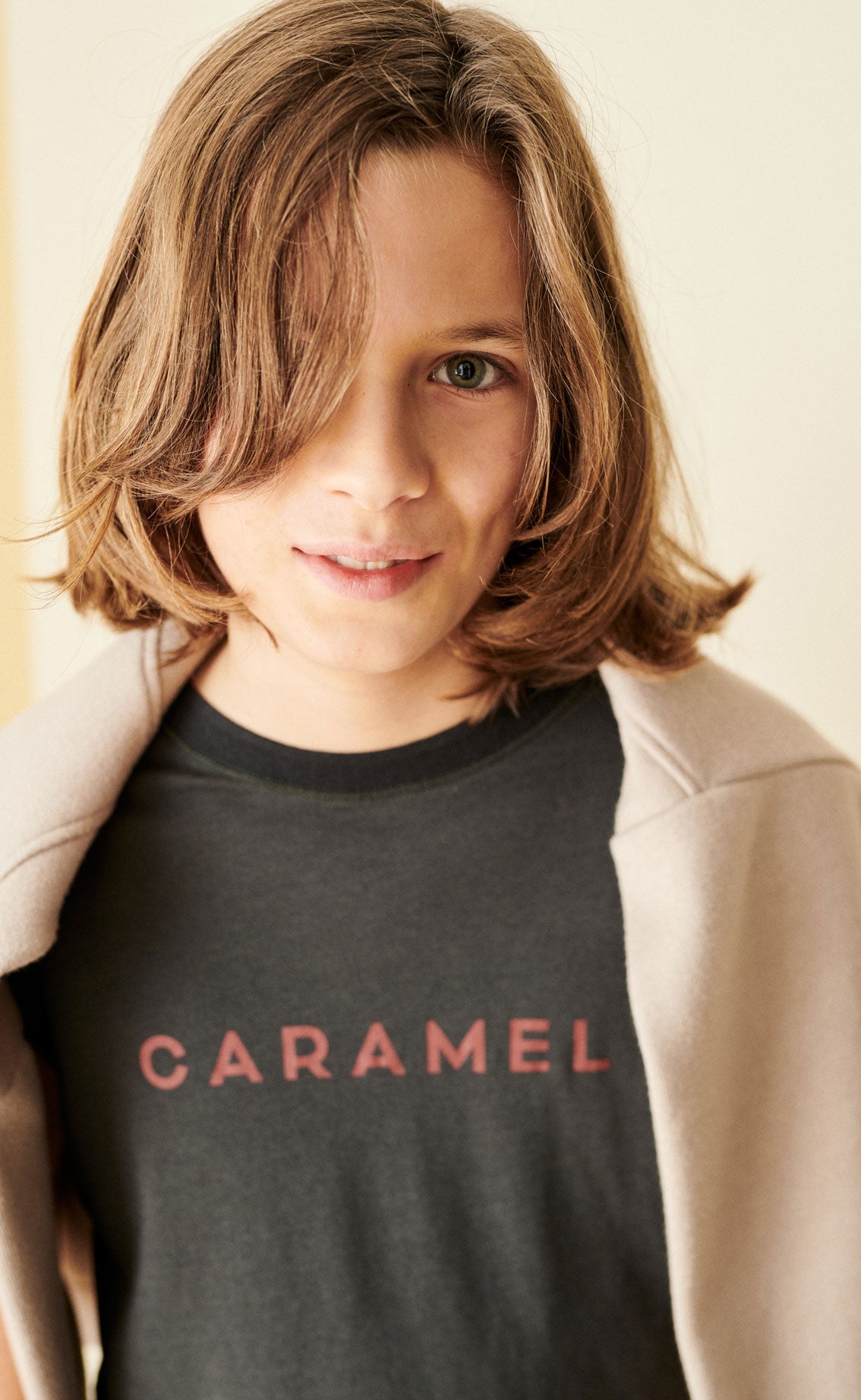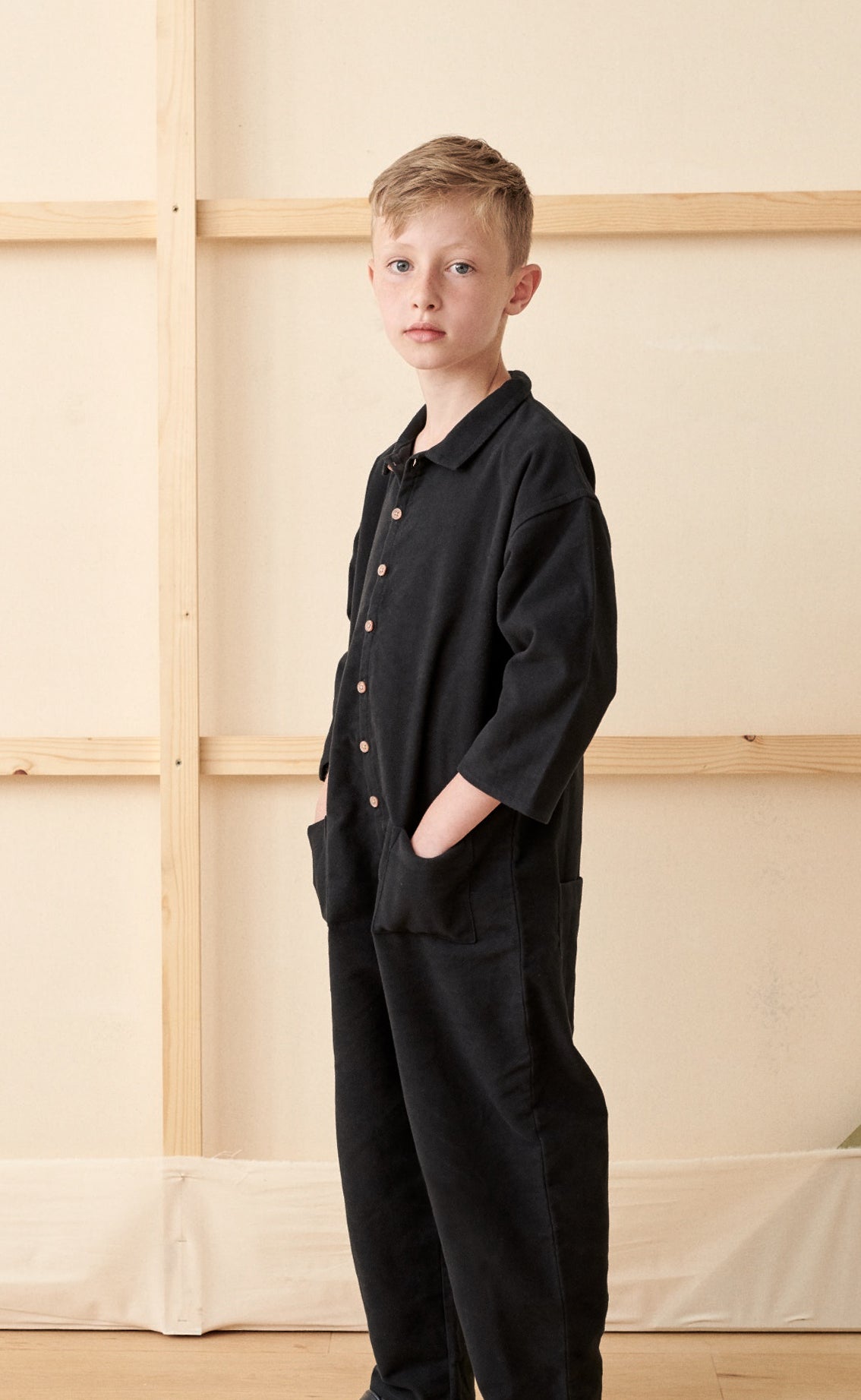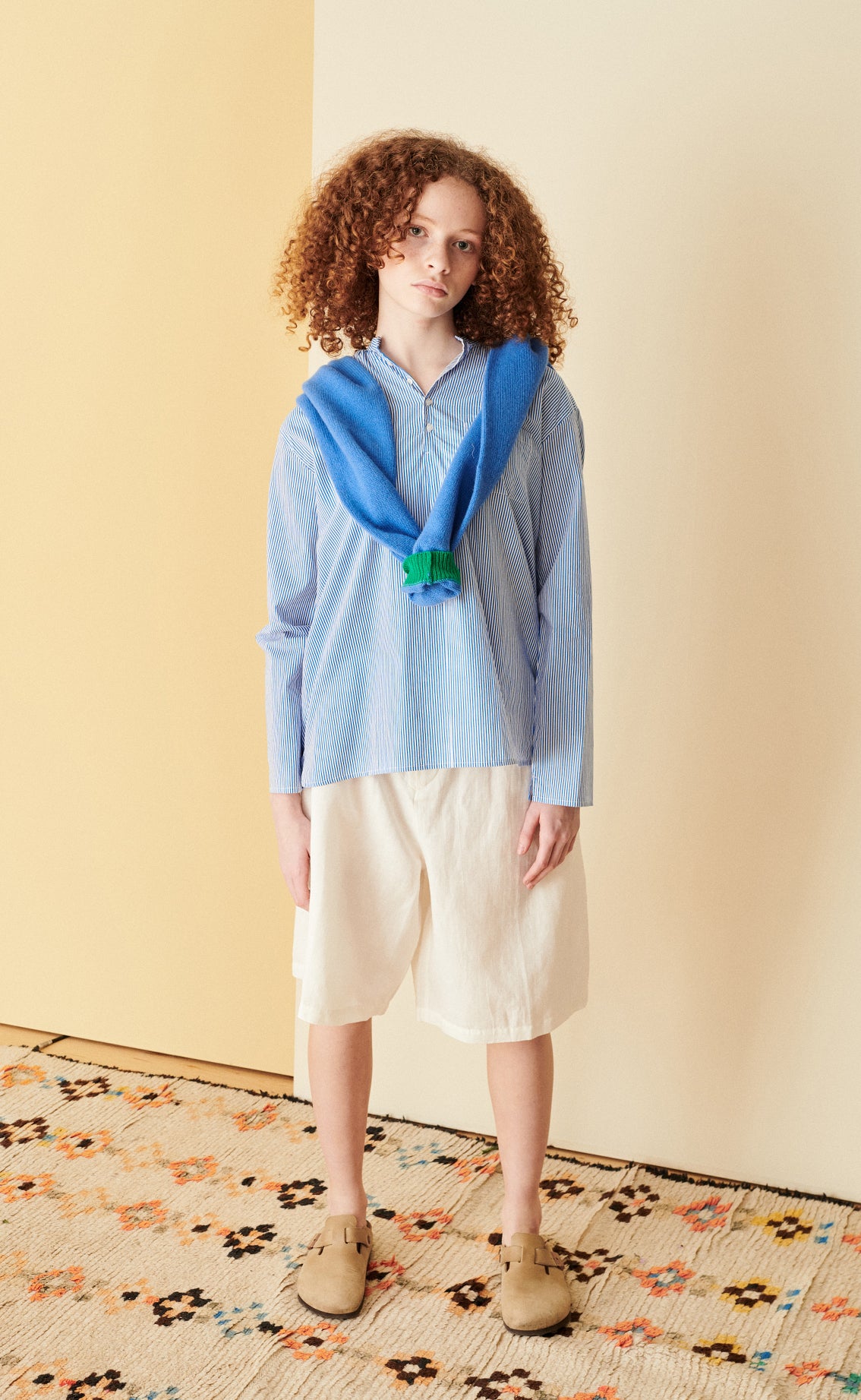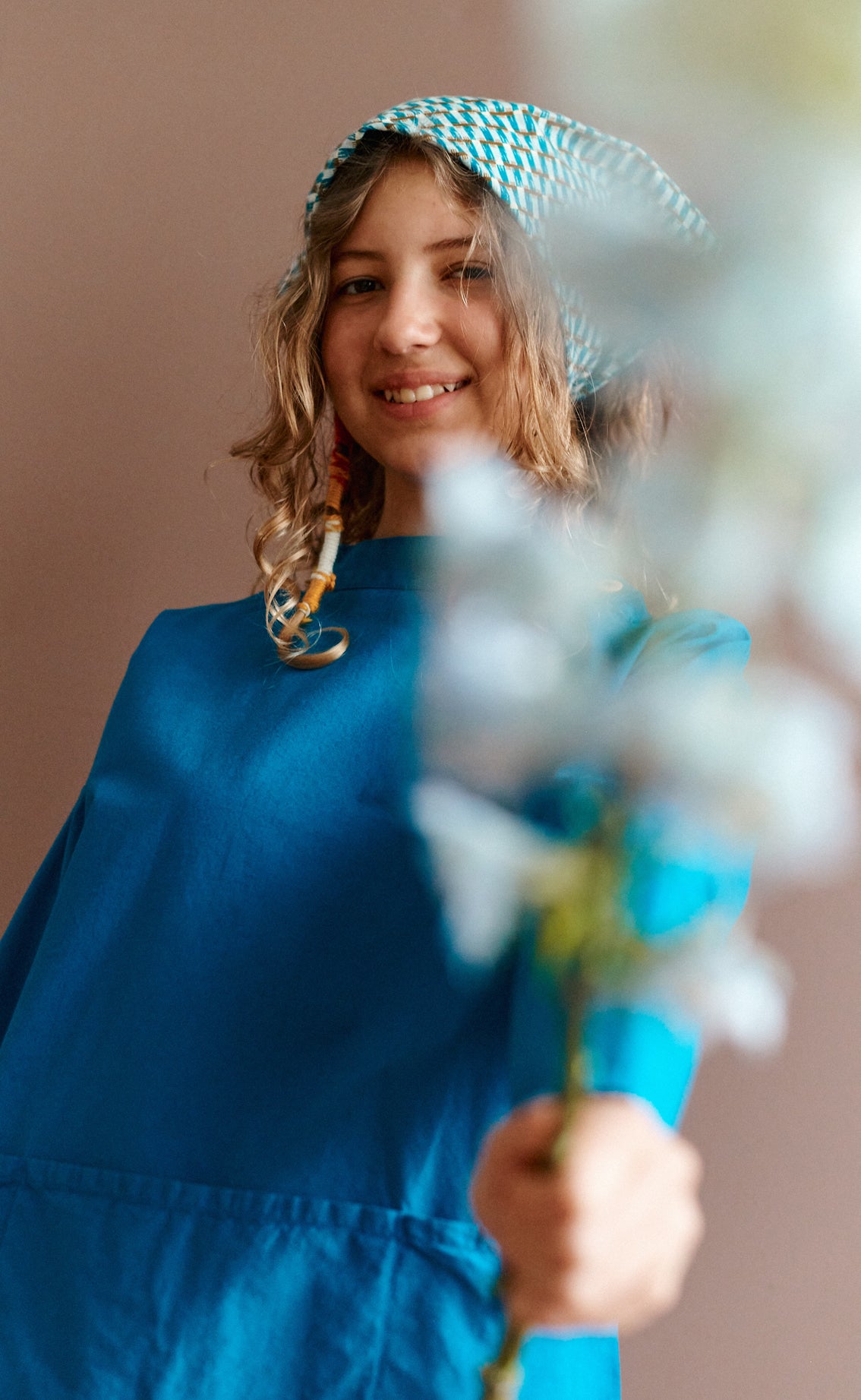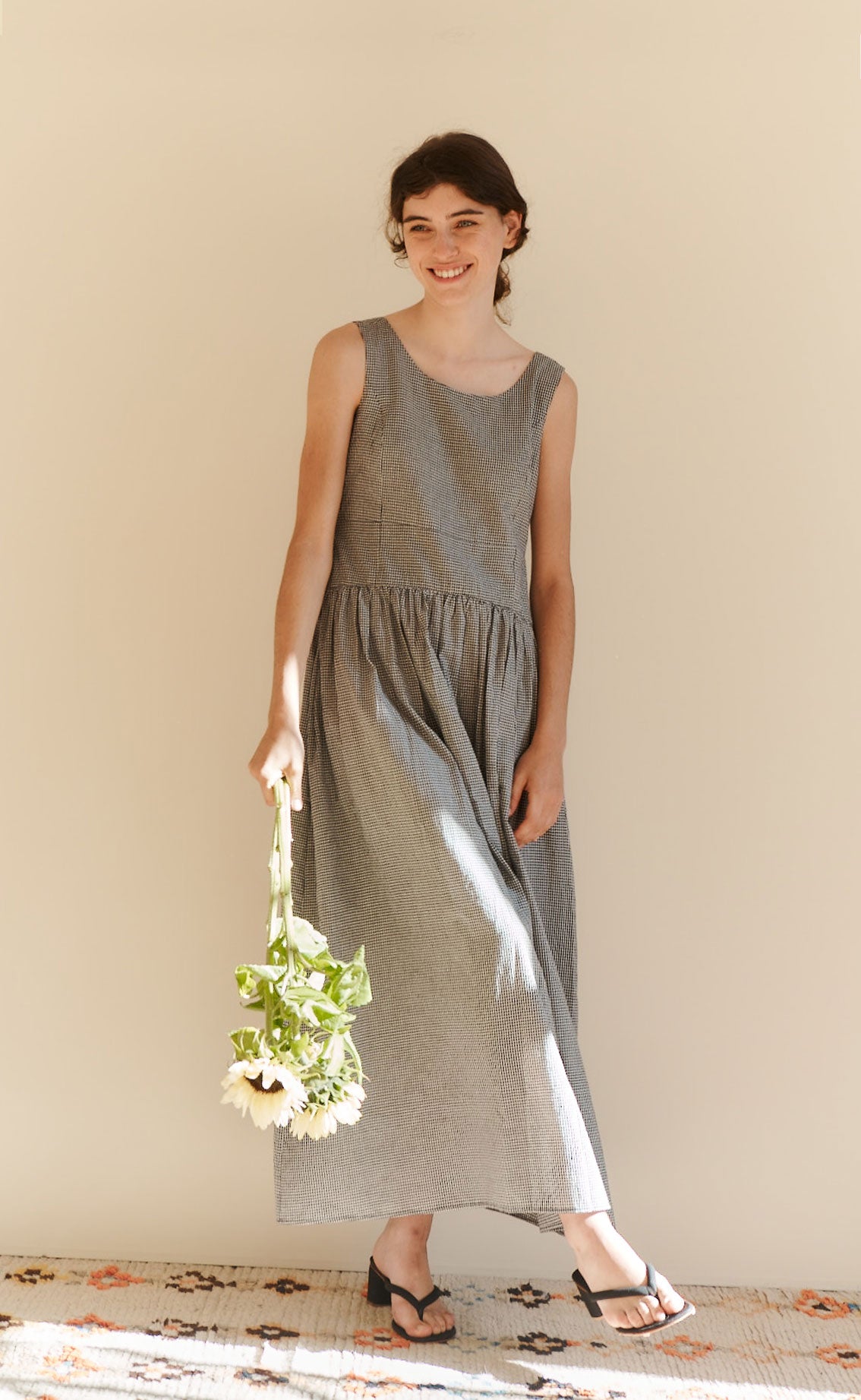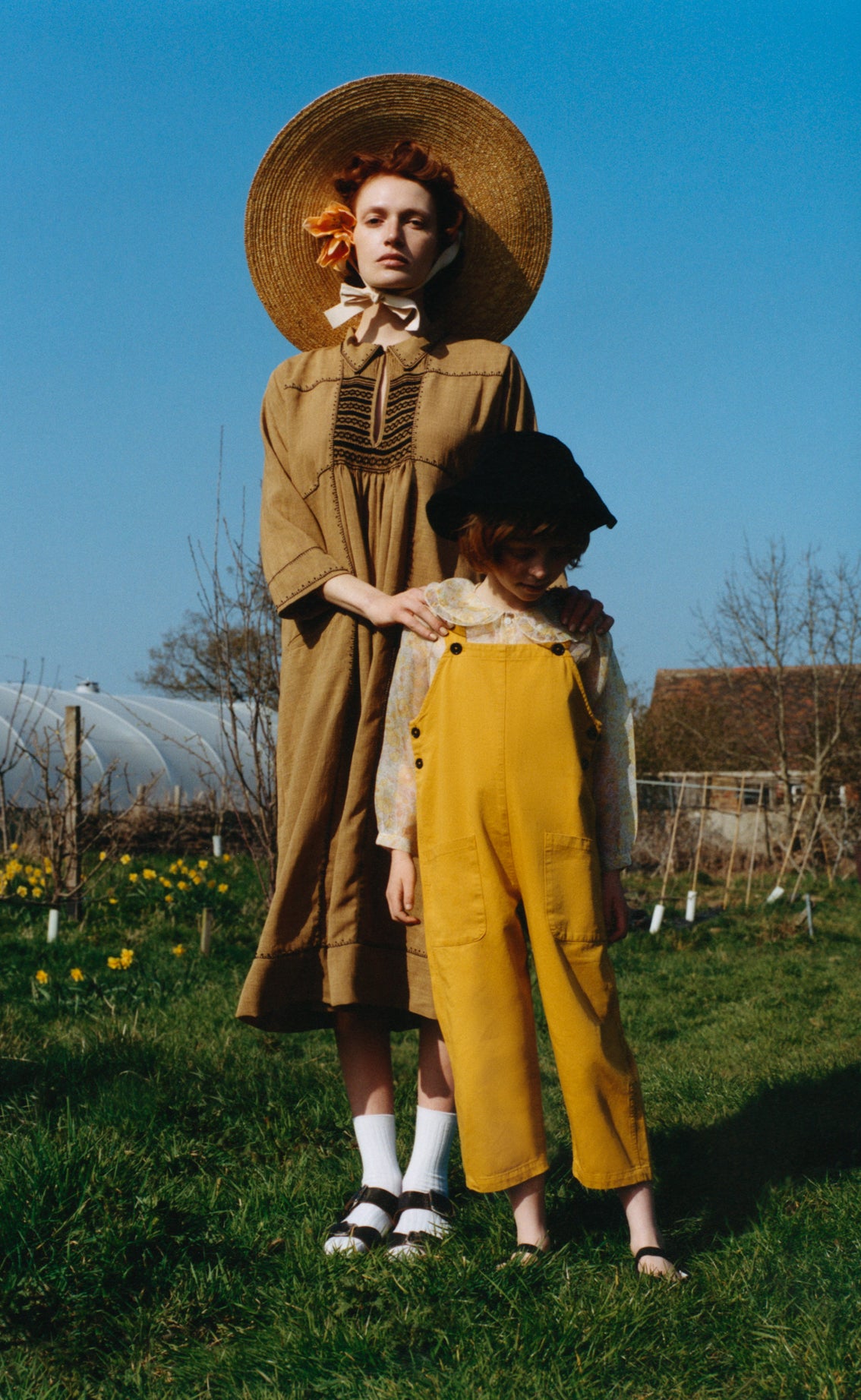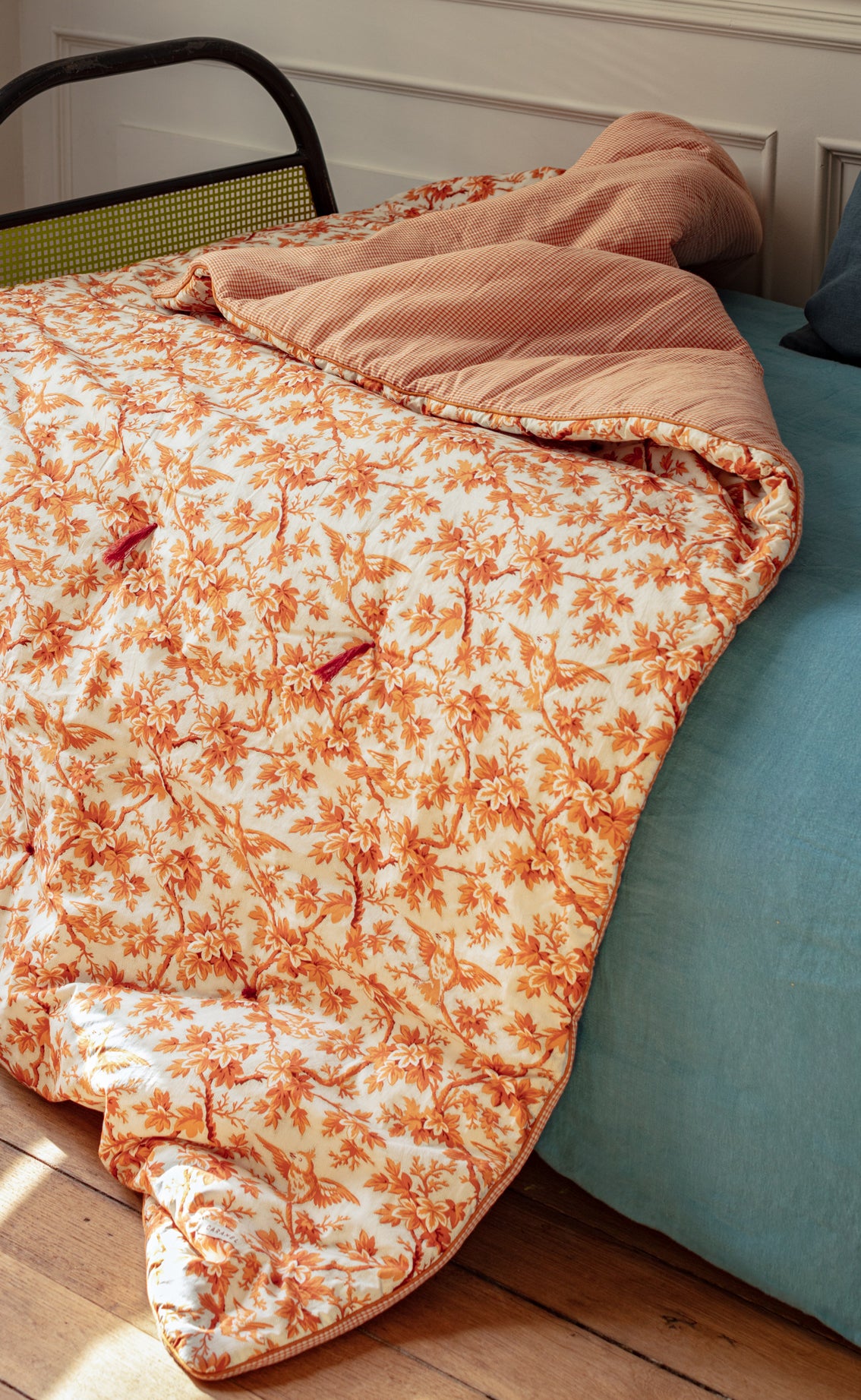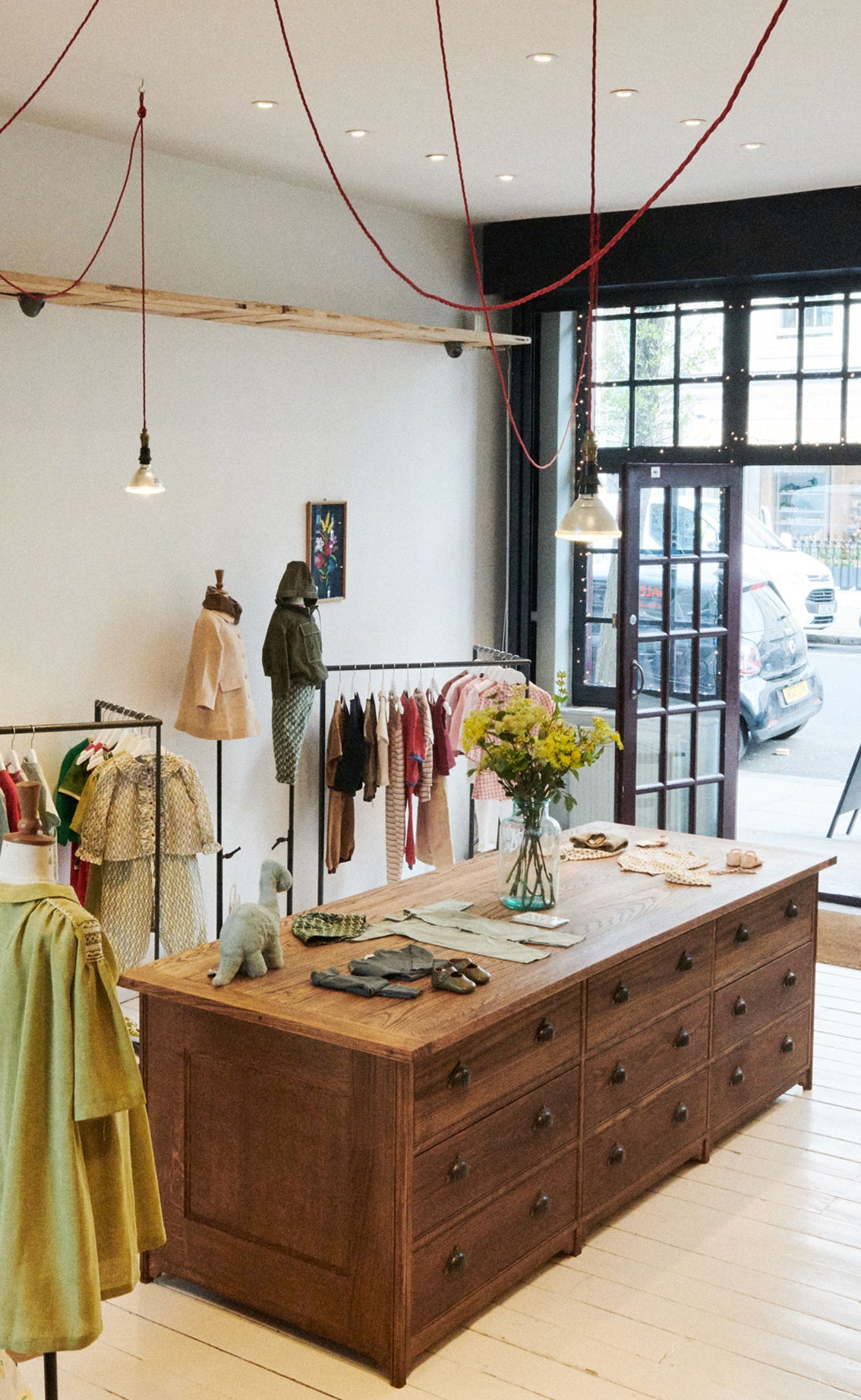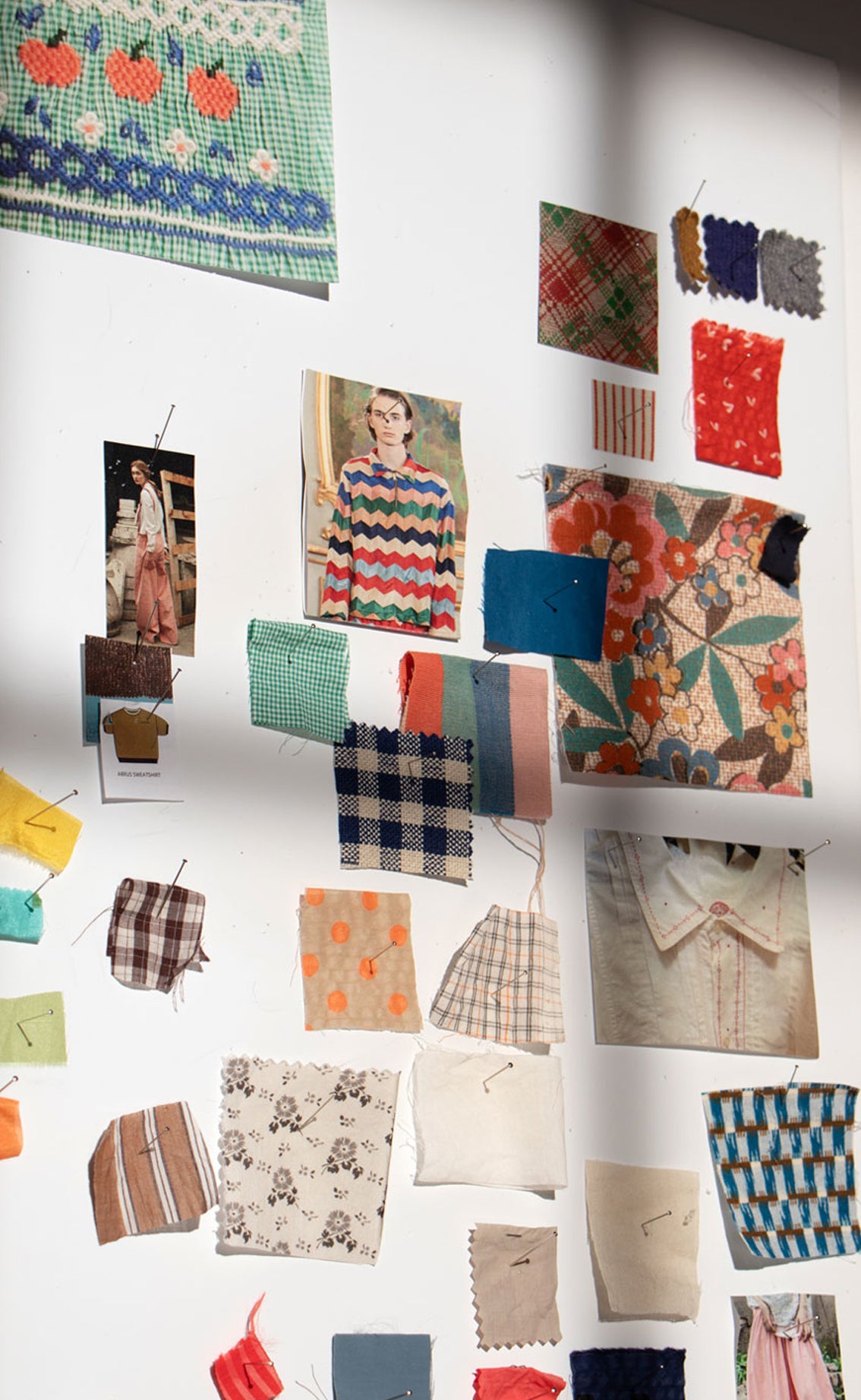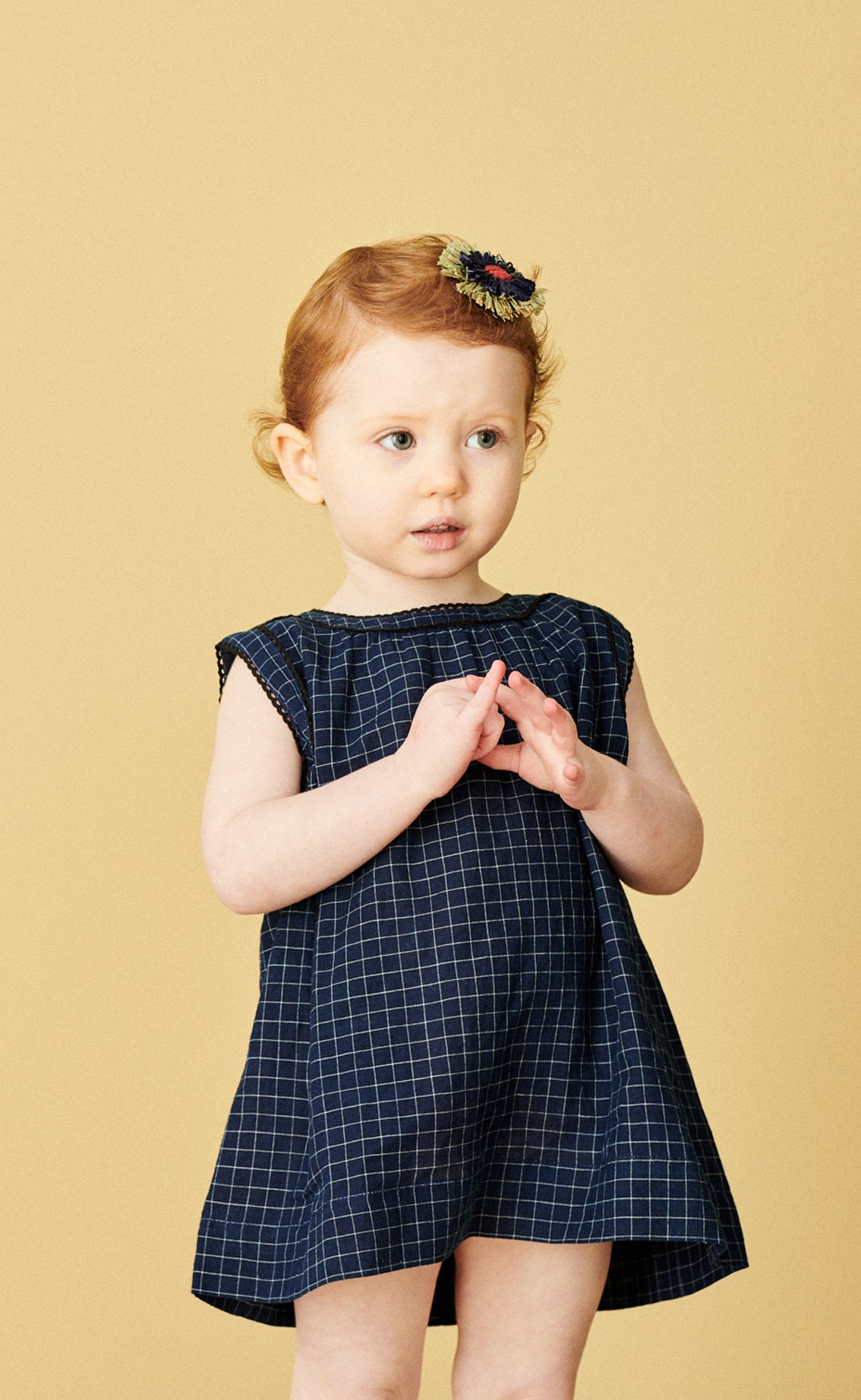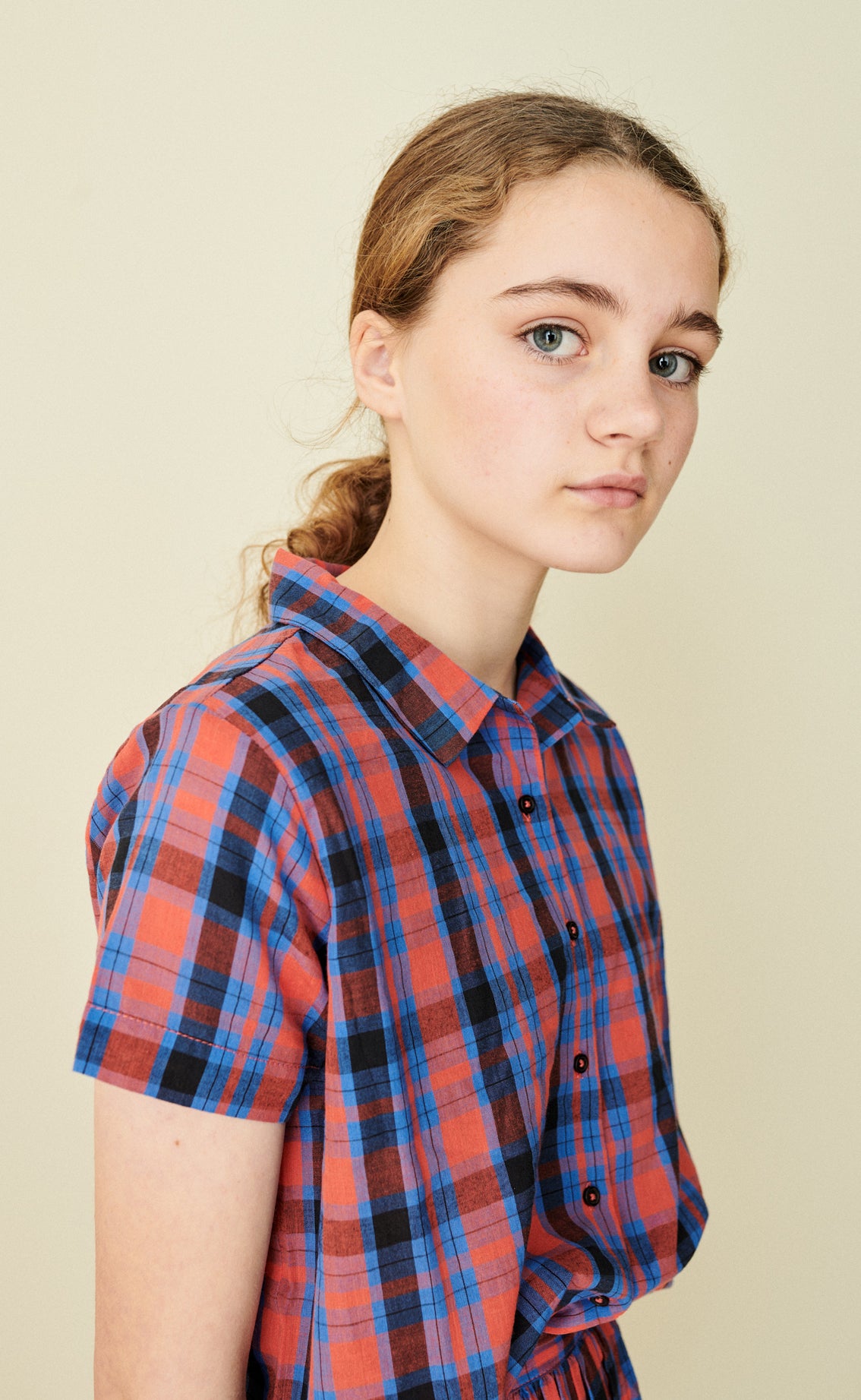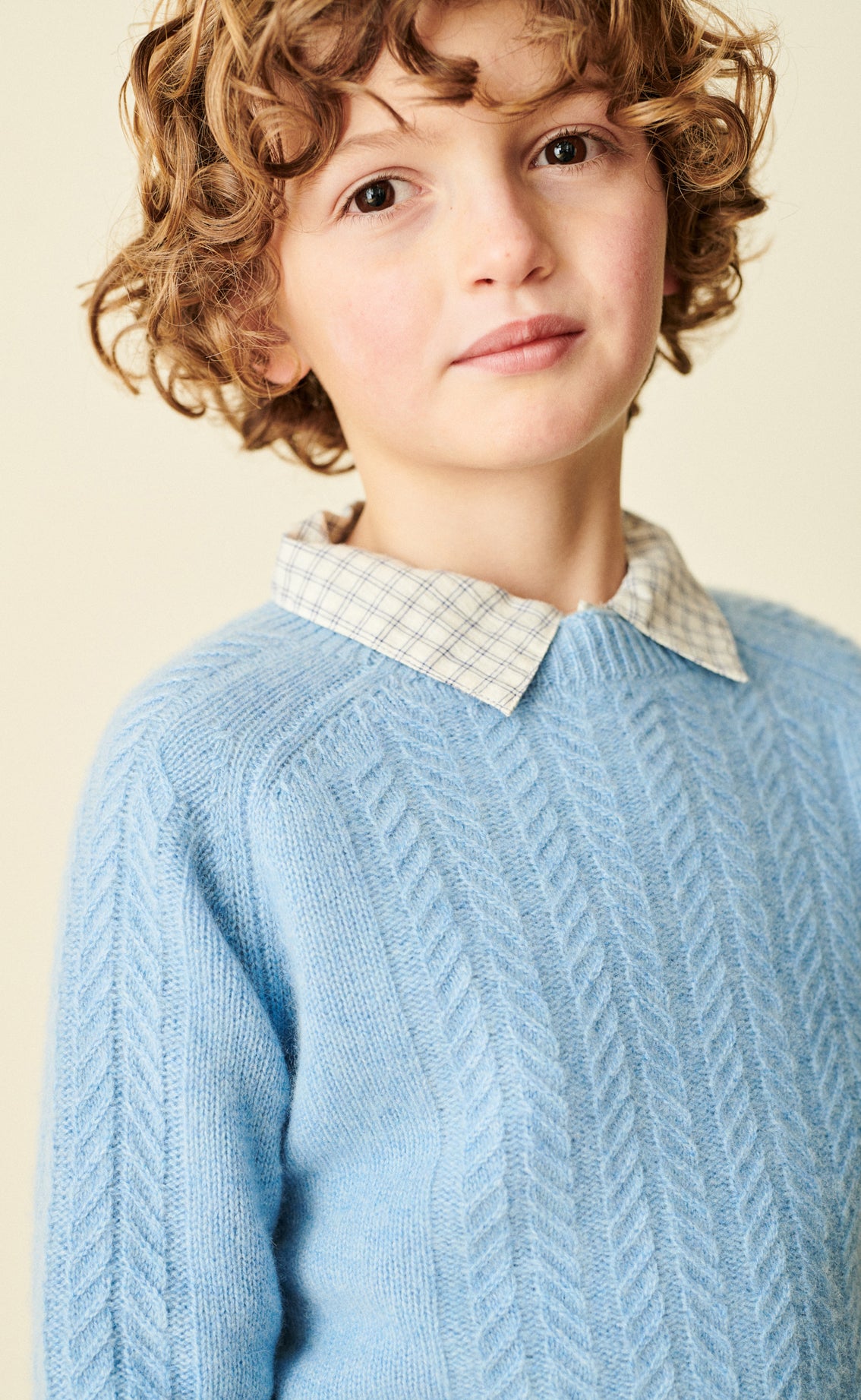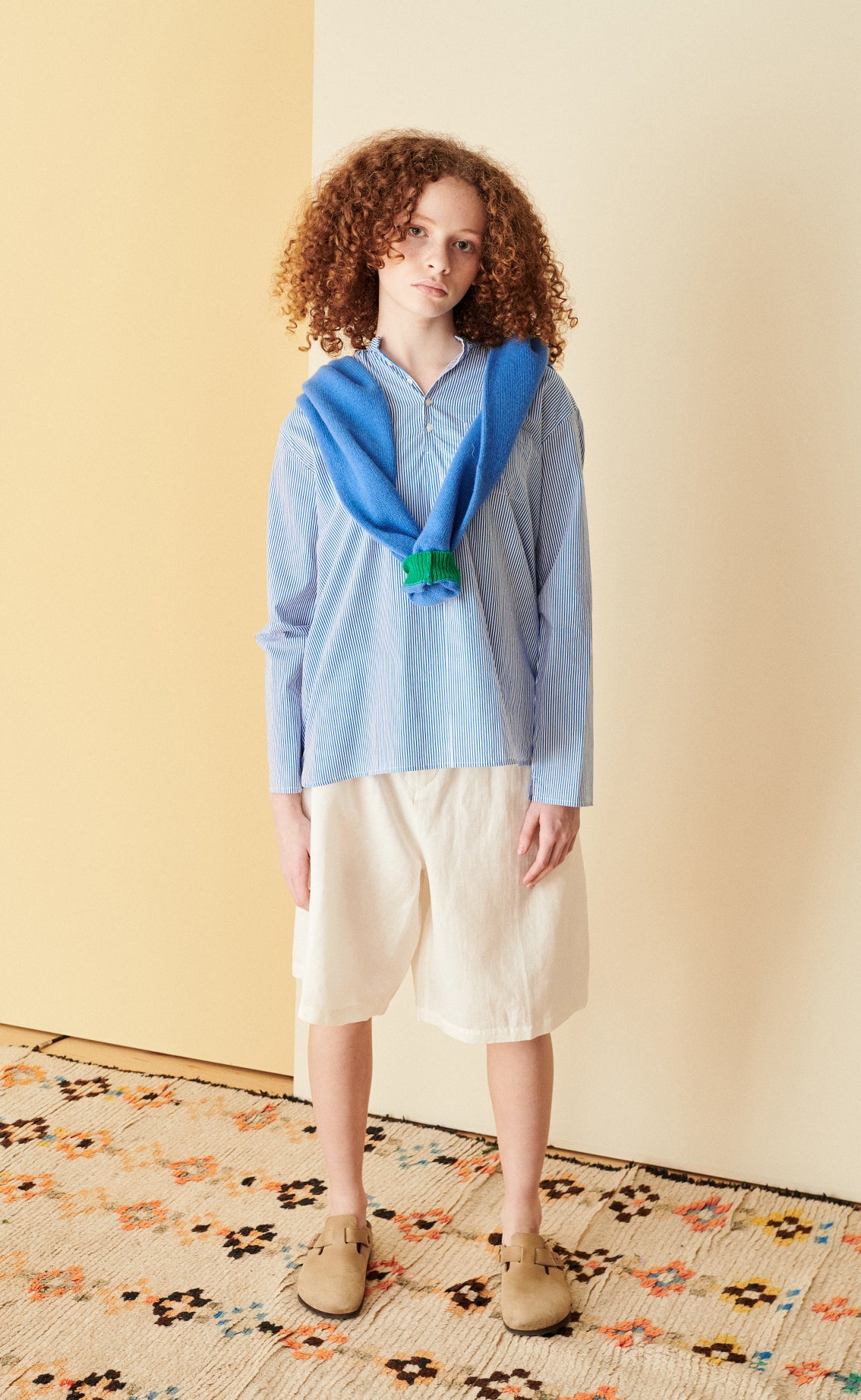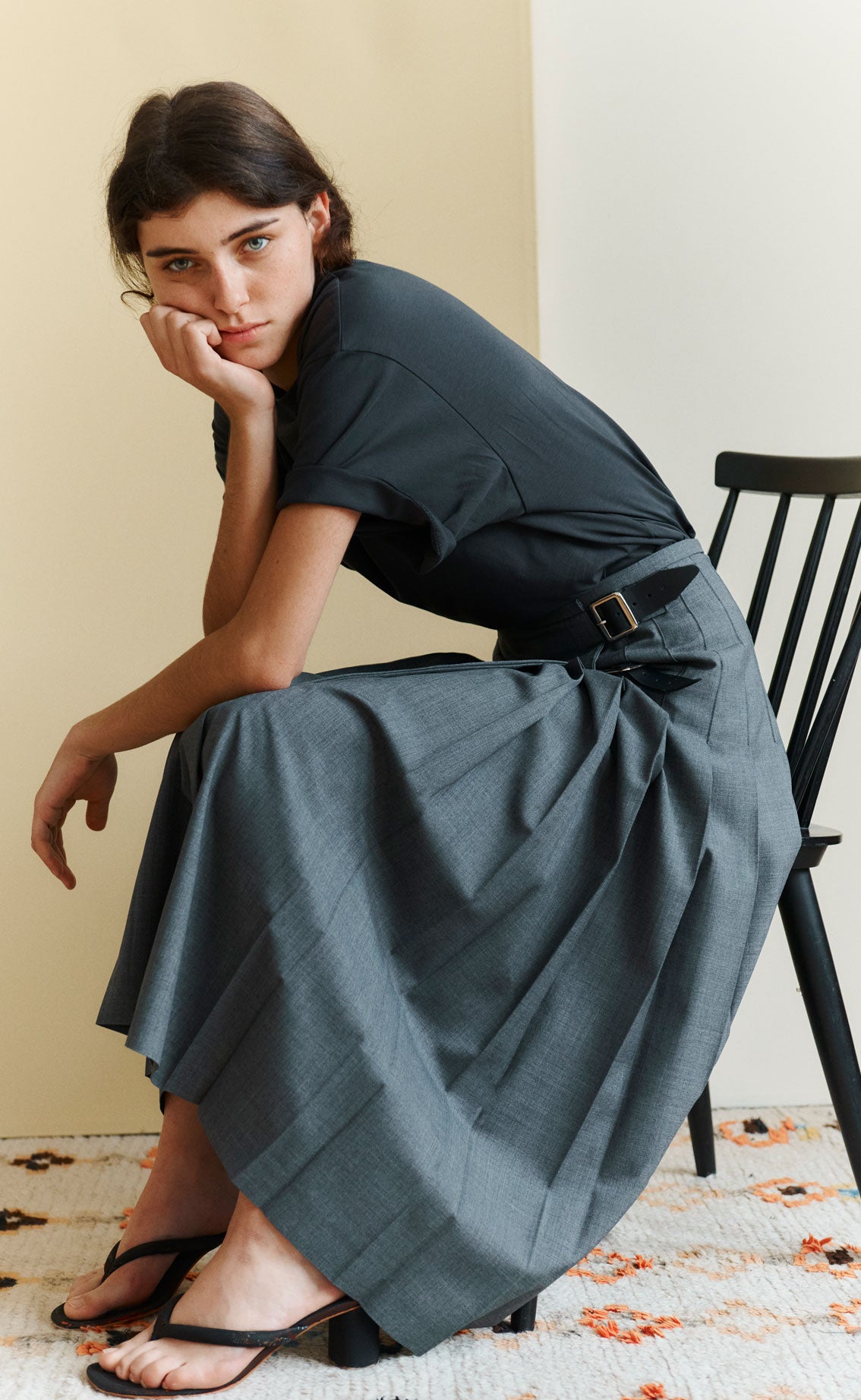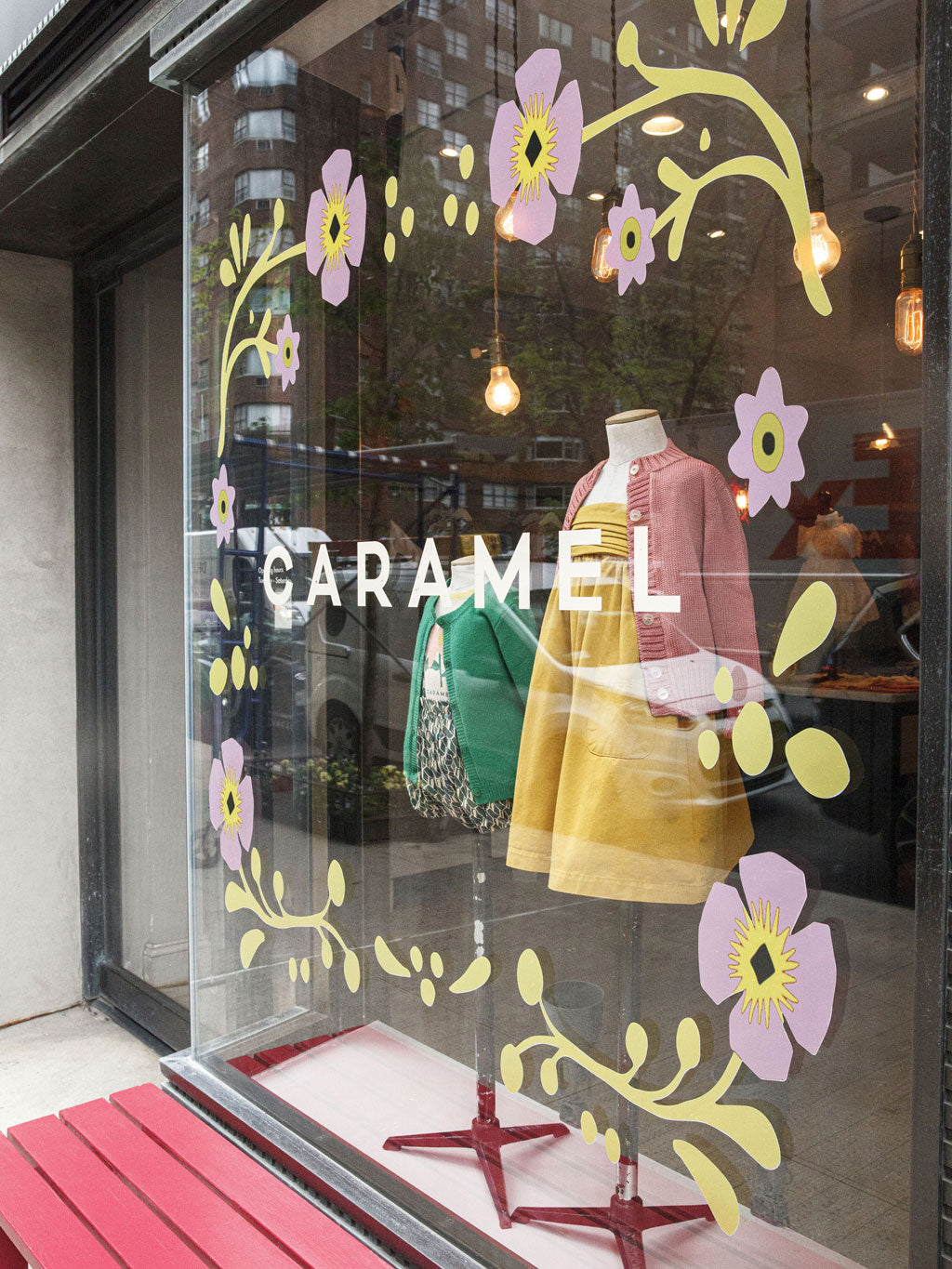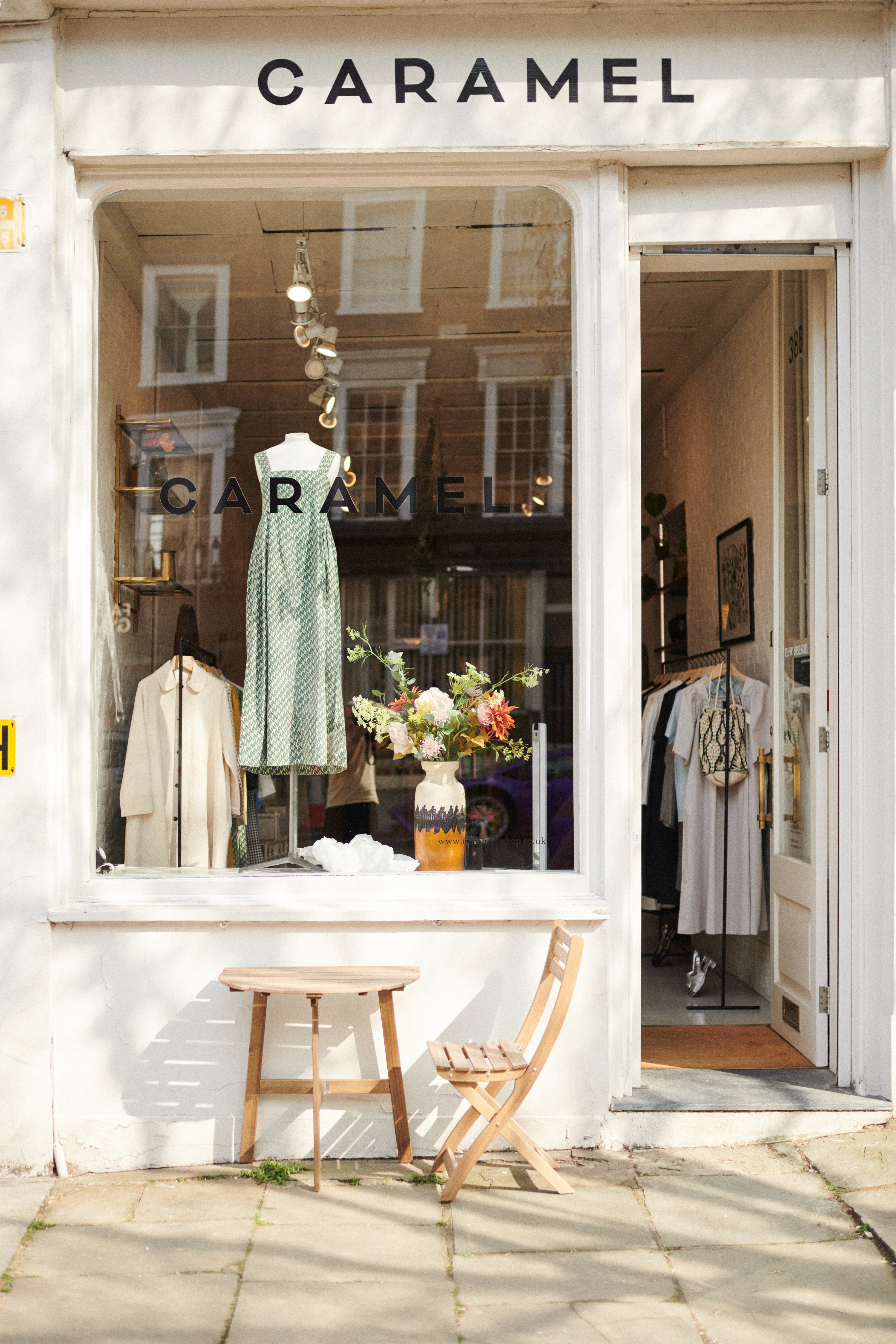IN FULL BLOOM
Milli Proust is an actor, writer and plantswoman in West Sussex working with flowers she grows to create sustainable designs which reflect the seasons. All her stems are grown in rhythm with nature, with organic practices in a passionate effort to protect and regenerate wild-life.

When did you decide to be a plantswoman?
My grandmother was a great horticulturalist and we used to visit her often in Oxfordshire. She taught me a lot of the names of the plants in her garden and in the wild. She would introduce us to them almost a touch theatrically. “Here is a Bird-foot trefoil…” And then she would tell us if we could eat it or it had medicinal properties.
Their names never stuck until I had a garden of my own. I really do love plants, I find them endlessly fascinating and I’ve always had a tiny patch to watch them grow whether that was a windowsill or a balcony. But I suppose it really took off when I moved in with my boyfriend in West Sussex and introduced more plants into my life. I’ve been doing the flowers for weddings for the past few years but on a very small scale. I trained as an actor and a side hustle was as an archivist for a private photographic collection as well as Battersea Power station. I juggled all three until Covid hit.
 |
 |
You live near the Mens. Did you ever think you would live in deepest, darkest West Sussex?
Never. Or at least (laughs) not until I was a grown up. I grew up with concrete in South London. I am scared of the dark, have a fear of mice and any ‘playing’ at rural-living before then involved borrowing a neighbour’s whippet, Billy for a stroll around local parks. It was a challenge: where we live is dark, boggy and can be a frost pocket which, when it arrives, can take hold for weeks.

What are the challenges and frustrations of being a gardener?
(Laughs) The time a deer came in two weeks before a wedding and decimated the entire crop of flowers that I had been nurturing for almost 9 months. I had to think on my feet and figure out a way round it because brides usually want specific flowers and nature often has her own ideas. You can’t ask a flower to open up and be perfect on a specific day, the way that I grow. What I do tell brides now is that I can’t promise exactly what will flower on their wedding day, but I can promise it will be beautiful.
How do you plan your garden? Are you intentionally very restrained with your palette….there’s a quietness to what you grow, like a painting.
Oh that is good to hear as I would love to be more restrained. I really love colour, it’s one of the most fun things about the garden for me. I grew up in a family of artists: my mum was my art teacher at school and my brother is a painter who went to the RA and he is full time painter and my father is a curator and bookmaker. So in many ways I have been surrounded with this consistent extracurricular learning schedule about colour and form and I think that has definitely informed the way that I plant. I’m not afraid of colour or idiosyncratic plants.
I wanted to plant the garden with pale colours in spring so that when I came back from work it would shimmer in the moonlight. It started with snowdrops and then primroses, narcissus and pale sherbet coloured tulips, such as Salmon van Eijk, always a favourite crop because they die so beautifully. Then the lupins, the oriental poppies and the roses take over.
 |
 |
Has gardening taught you to go with the flow?
Absolutely. I’m such a control freak. There are so many other good lessons though too. There is a lot of humility and learning that nature is ultimately in control. There is a lot of grace to be learnt from the plant world…and resilience too. Roses can be cut down to the ground and then they rise up and bloom so beautifully.
Are there any sustainable practices that you have implemented?
I try to be sustainable as possible and that involves making our own compost and I use no dig methods to keep the soil infrastructure which allows for better drainage. It allows for a longer tap route to access the water table and for food and it also means a lot less weeding and it protects the soil with the thick compost mulch covering. I also make my own compost tea to feed the plants. I don’t use plastic when I send flowers out, everything is biodegradable and I love the cycle that nothing goes to waste, that every stem which doesn’t get sold, ends up being part of the next year’s system to feed the crops from the compost heap.
What do you love most about watching things grow?
I’m struck by the beauty of all stages of a plant when it’s growing, not simply the final bit. Also seeing the vigour and resilience of nature and being surrounded by beauty. I love the quiet joy in nature and the cycles of life.
Other gardens you admire?
Oh there are so many. I really love the walled garden at Parham, West Sussex house: their borders are planned so beautifully and they have texture and structure and colour all throughout the year and they are very playful. I love Great Dixter too for its moments of unexpected theatrics.
You attended RADA, how does being an actor inform being a plantswoman?
I don’t think any type of education is wasted and studying there still informs everything that I do today. I see the garden as I would perhaps a stage and I’m a bit like a director in how I choose the planting plan and the stories I want it to tell. There are certain narratives - which totally transfer to bringing flowers to an event or a wedding - and having a crescendo in the summer. How flowers interact with each other is endlessly fascinating.
How do you think gardening has changed you as a person?
I grew up in London surrounded by concrete so I feel very lucky to have found a deep connection with the earth and nature. I think it has made me a lot less anxious. There are so many studies which show how it can affect your mental health and even just some of the bacteria in the ground can chemically change your mental health for the better. Although (laughs), I do think it’s made me a lot more tearful…being outside in the fresh air and seeing so much beauty.
What gives you the greatest joy?
I think there is great joy in putting different combinations of flowers together and wrapping them up with purpose.

Milli's first book, Seed to Bloom is out on 9th June.
From Seed to Bloom by Milli Proust (Quadrille, £20) Photography ©Éva Németh

